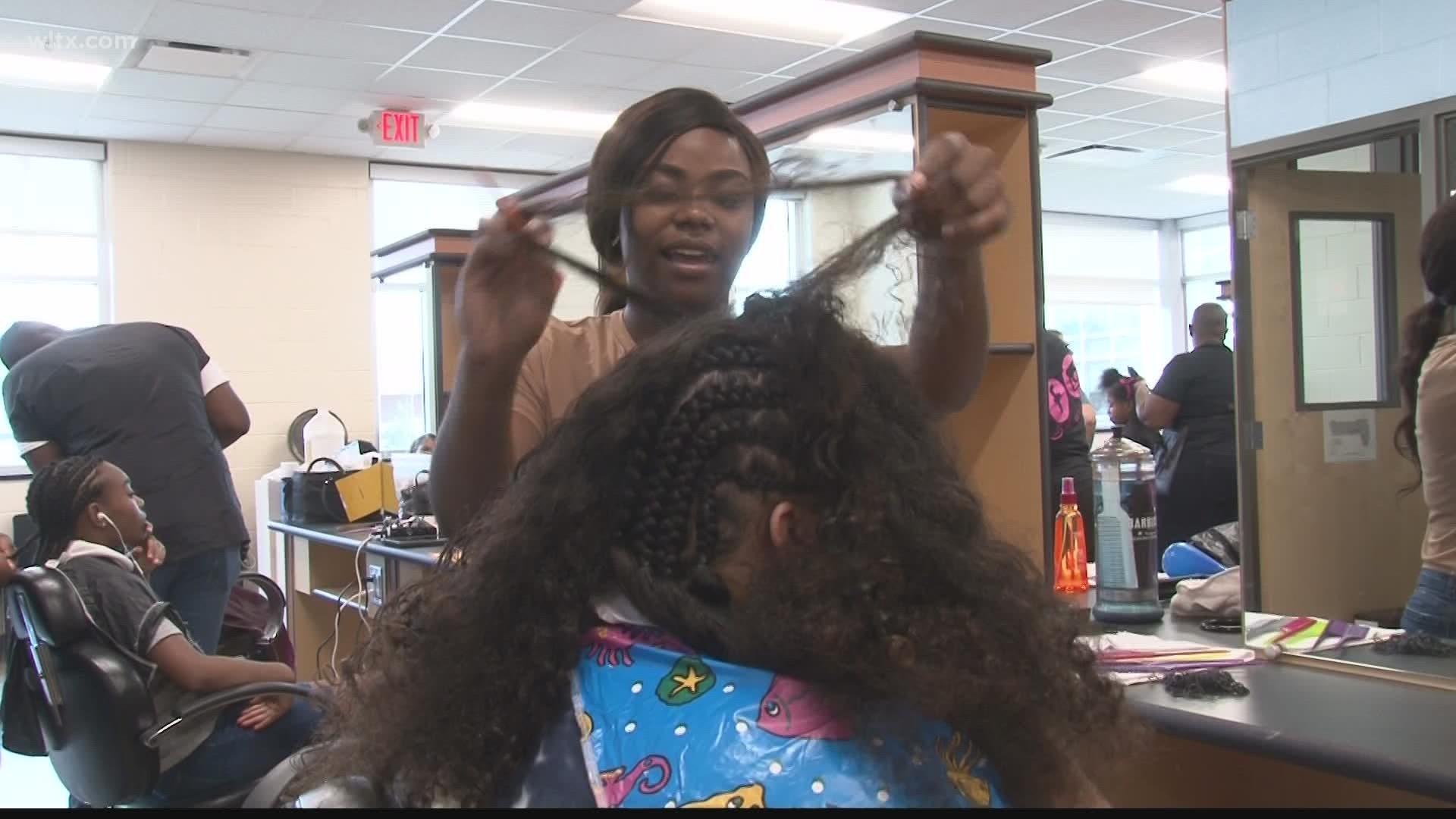SUMTER, S.C. — Morris College is celebrating the culture and identities of Black women through a community conversation about hair.
The historically Black college, or HBCU, is hosting Michaela Angela Davis, the creator and co-executive producer of The Hair Tales.
"There's a story in every curl, coil and kink," Davis shared.
It's a lesson she realized growing up as she met other Black women. Now, it’s a message she’s hoping to share with the Sumter community.
"Hair is a holding place for experiences and emotions and memories," Davis said.
It’s a way for Black women to connect with each other, according to Davis. That's why she helped create the Hulu docu-series, which details the experience of six Black women and their hair.
"It starts to open up a portal of memory. Either recent memory, or their grandmama, or their auntie or their sister who braid their hair on the stoop," Davis explained. "And then once you open the portal to memory, the stories start coming out."
This is a journey that Morris College senior biology major Dranicia Grey has come to know.
"Your hair as a Black woman is a lot to you," Grey explained. "We all have experiences that are quite similar or the same and it just shows us how we are connected to each other through our hair."
Grey tells me she’s looking forward to the conversation, which she will help facilitate.
"It will make me feel seen," Grey shared about her excitement for Tuesday's event. "Like more seen as a Black woman, because she’s coming to not only to speak to black women at HBCU's but she’s coming to my HBCU, so it really makes me feel seen and it makes me feel heard."
That’s what Davis is hoping for.
"Your hair is a flashpoint. It’s a racial identifying feature," Davis started. "Talking about our hair is talking about our existence, but it’s an on-ramp."
Davis wanted to come to Sumter, where a lot of her family is from, to start that conversation.
"Black women and girls everywhere can wear their hair no matter how they want to. It can be pink, it can be blue, it can be loc-’ed, it can be twisted, braided, tangled, however," Grey said. "But Black women are more than their hair, Black girls are more than their hair, and they are allowed to wear their hair and be free however they see fit no matter where they are."
The free community event is happening from 6 to 8 p.m. in the Neal Jones Auditorium.
Your hair as a black woman is a lot to you
It will make me feel seen. Like more seen as a black woman because she’s coming to not only to speak to black women at hbcu’s but she’s coming to my hbcu, so it really makes me feel seen and it makes me feel heard
Black women and girls everywhere can wear their hair no matter how they want to. It can be pink, it can be blue, it can be loc-’ed, it can be twisted, braided, tangled, however. But black women are more than their hair, black girls are more than their hair, and they are allowed to wear their hair and be free however they see fit no matter where they are
Michaela angela davis, creator and co-executive producer of the hair tales:
It was born out of a desire to tell stories and expand ideas around a group of people, particularly black women, that have been narrowly looked at
We’re so diverse, but there was something that united and connected us. There was a sisterhood - some people call it black girl magic
And what that does is it starts to open up a portal of memory. Either recent memory, or their grandmama, or their auntie or their sister who braid their hair on the stoop. And then once you open the portal to memory, the stories start coming out
It’s very particular to black women. Men don’t have the same experience, women of other races don’t have the same experience of black women, particularly in the americas, around our hair
Hair isa holding place for experiences and emotions and memories. And there are very few sacred places where black women feel safe
Your hair is a flashpoint. It’s a racial identifying feature
Talking about our hair is talking about our existence. But it’s an on ramp
Because my grandparents are from sumter. My mother’s mother and her father are from sumter. And we have, in their generations, people that went and taught at morris.
We have cross-generational conversation about our lives

